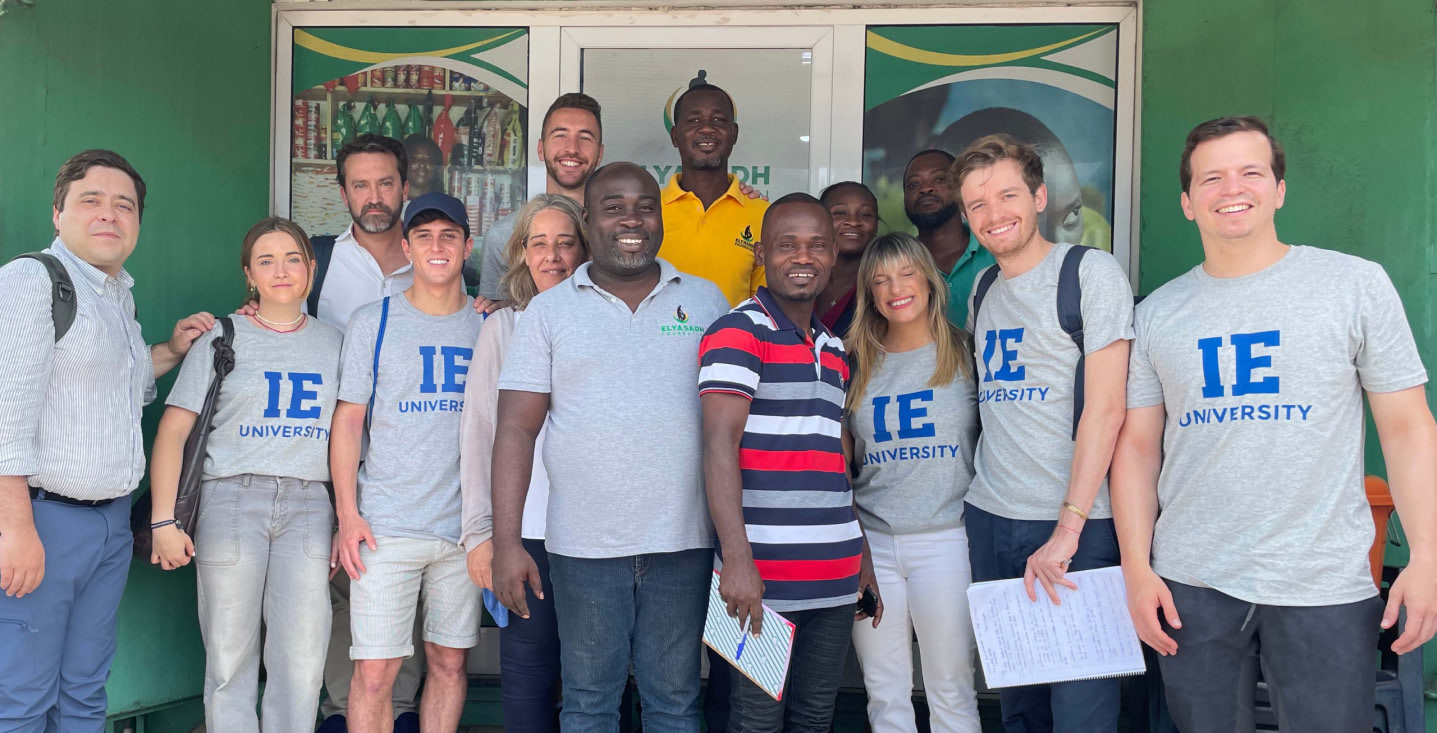26/06/2025
We can put the map in your hands.
Quell your doubts—there are more careers in international development than ever before. The world is in dire need of professionals who are well-versed in the fields of sustainability and development. And we know what it takes to become a top profile.
Can you find solutions to global issues? Could you become an expert in Sustainable Development Goals (SDGs) and make the world a better place?
Read on to see how you can navigate a global, impactful sector and have a career that matters.
What current trends are affecting international development careers?
If you’re wondering how to start a career in international development, there are a few trends that you should be aware of. Here are the biggest shifts happening on the global stage—and the roles we’ll need to handle them.
Climate change
The ongoing and intensifying impacts of climate change—such as loss of arable land, urban growth, heightened conflict risks and human migration—will require new innovative tools and strategies. Those working in international development must understand these climate-related challenges and ensure organizations are equipped to address this crisis effectively.
Rise of China
Over the past few decades, China has grown into one of the world’s most influential countries. As China steps into a more prominent global development role, it is adopting approaches focused on commerce, trade, financial loans and Chinese expertise. As the nation shifts away from traditional Western-led development models, we’ll need professionals who can anticipate their influence on global development dynamics.
Technology
Rapid technological advancements, particularly in digital connectivity—smartphones, data tools, and communication platforms—are set to revolutionize development work. Technology can improve project implementation, data collection, and service delivery, making processes more efficient. However, it is critical that innovations are appropriate and accessible, ensuring they genuinely meet the needs of local populations without diverting focus from core development goals.
Localization
Localization seeks to empower local actors—governments, organizations and communities—to lead development efforts. This is all to reduce reliance on Western donors and organizations, especially since local actors better understand their own needs. There will be international development career opportunities in directing funds and resources towards these local initiatives.
Human migration
The movement of refugees, internally displaced persons, and economic migrants has increased significantly due to conflicts, climate change, and economic crises. The future of development will depend on effectively addressing both the root causes of migration and the needs of migrants and host communities. Managing large-scale displacement will be a defining challenge for the sector.
Funding changes
International development funding is shifting, with many governments reducing aid contributions while private donors, foundations, and new international partnerships increase their involvement. This diversification of funding sources highlights the need for innovative, sustainable financing models to ensure continued progress.
Private sector involvement
Over the past decade, private companies and for-profit organizations have become more engaged in development work. Larger firms are offering specialized expertise and funding, changing the traditional reliance on NGOs and government agencies. This trend will likely grow, prompting the sector to reconsider how partnerships and roles are structured.
Learn how to work in international development
The Master in International Development, developed in partnership with the United Nations System Staff College, is tailored for professionals looking to advance their careers across various sectors. This unique 10-month program combines online learning with in-person sessions, allowing for live interaction, networking and skill development. With a part-time format, students can balance their studies with work commitments. The program provides practical insights applicable to multilateral organizations, governments, businesses and nonprofits, helping students understand international development challenges on a deep level.
Aligned with the UN 2.0 Quintet of Change, this program prepares you to tackle the goals of the 2030 Agenda for Sustainable Development. It’s designed for leaders committed to promoting social, economic and environmental prosperity worldwide, focusing on the SDGs that guide the work of many organizations in the field.
Unlock a career in international development
Graduates of the Master in International Development have a wide range of career options in different industries and organizations.
These include international organizations, social impact companies, non-profits, government agencies and the private sector.

To further explore the wealth of career paths available, IE Talent & Careers recently hosted a webinar with Miguel Figuerola, a human resources leader with 30 years of experience in international organizations such as the World Intellectual Property Organization (WIPO) and the United Nations Development Program (UNDP).
Miguel highlighted career opportunities in inter-governmental organizations (IGOs) like the UN, emphasizing their role in fostering global cooperation. He described the world of IGOs as fascinating, complex and enriching. Working in one of these institutions provides the chance to promote collaboration between countries to find solutions that benefit the world as a whole.
Javier García Colino, senior assistant director of IE Talent & Careers, shared his insights into further career paths in the field. Within the public sector, there are many governmental and diplomatic services focused on international development. NGOs offer impactful roles in non-profit organizations that work independently of governments to champion human rights. Think tanks and academic institutions carry out research and advise governments and institutions.

In the private sector, international development opportunities include impact businesses, which are for-profit organizations that have aligned their business profitability goal with a positive impact on society.
Additionally, most businesses today have sustainability or ESG departments, which guide the company to improve its sustainability and social impact. Javier explained that as sustainability becomes more and more important to companies, new career avenues are opening up across industries.
Finding careers in international development with IE Talent & Careers
IE Talent & Careers assists students on their career journey from day one with guidance on job searching, interviews, networking and industry trends. The team also organizes networking and recruitment events, as well as giving one-to-one advice to answer all your career questions. IE University supports you throughout every step of your journey—including after graduation.
The Master in International Development opens doors for career transitions into more impactful roles as well as vertical career progression within your current organization. With over 1800 recruiting partners from a wide variety of sectors and over 3,500 job opportunities published annually on the IE Career Portal, IE University connects you to the career prospects you’re looking for.
Enrolling in the Master in International Development at IE University offers more than just academic learning. It’s an opportunity to join a diverse community and gain the tools needed to shape your professional future.








